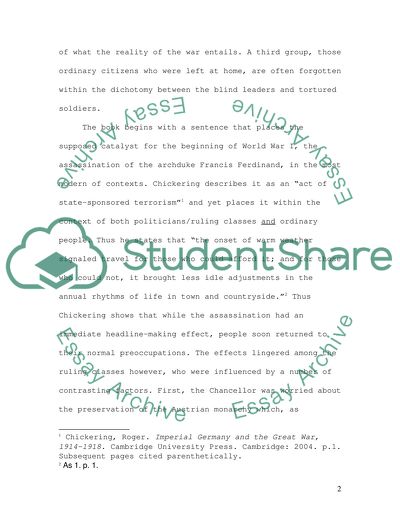Imperial Germany and the Great War Book Report/Review. Retrieved from https://studentshare.org/history/1522206-imperial-germany-and-the-great-war
Imperial Germany and the Great War Book Report/Review. https://studentshare.org/history/1522206-imperial-germany-and-the-great-war.


